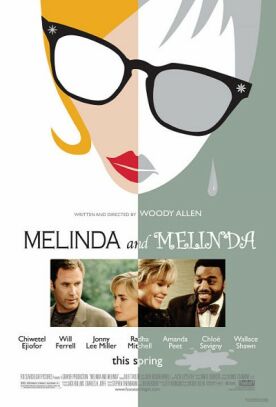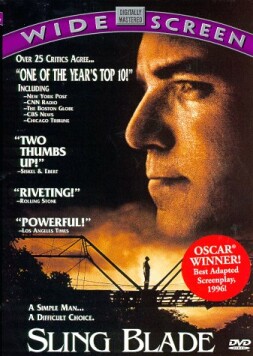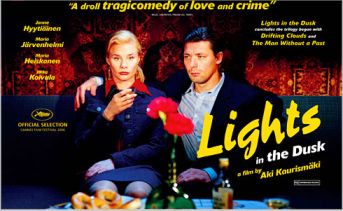Ghost Town
Not surprisingly for so highly visual and realistic a medium, the movies generally take a pretty dim view of God. As the great hymn of Walter Chalmers Smith puts it,
Immortal, invisible, God only wise,
In light inaccessible hid from our eyes. . .
Not much use then, is He, to those who are in the business of marketing things that are very much not hid from our eyes but, rather, vividly present to them? Yet, as if to make up for the Deity’s lack of screen chemistry, the movies have always been nuts about ghosts. They’re sort of invisible too, of course, drifting around at night just out of sight as pale splodges of diaphanous material and rather shy about more public manifestations in movies that try to keep the scary things out of sight until needed. But in non-scary movies they can also be visible as immaterial versions of their living selves. In this state, they are visible only to — well, whom? Anyone Hollywood wants them to be visible to, that’s whom. And those gifted with the strange and uncanny ability to see them will always include the movie audience.
Another great thing about ghosts is that they bring with them a whole mystic cosmology which it is the privilege, nay the duty, of the movie-makers to invent. Since no one knows anything about ghosts for real, even whether or not they exist, once you posit their existence, you have to devote a good third of your movie just to explaining the lore of ghosts and your answer to the question that is unfailingly interesting to everybody — namely, what happens to you after you die? For example, in Ghost Town, directed by David Koepp and written by him in collaboration with John Kamps, we learn, among other things, that ghosts can be seen and even familiarly conversed with by those who have suffered clinical death and then been resuscitated, that they appear in whatever they were wearing when they die, that they cause the living to sneeze when we walk through them and, above all, that they are only the dead people with urgent unfinished business on earth. The rest have gone on to, well, some place in the sky where they become as invisible as God is.
The great virtue of the movie is that the guy who sees dead people in it, Bertram Pincus, D.D.S., is played by the great Ricky Gervais in his first leading role in a feature film. There are also good things to be said about the performances of Greg Kinnear as the main ghost he sees and Téa Leoni as the ghost’s widow whose contemplated re-marriage he makes it his urgent unfinished business to prevent — with the help of Dr. Pincus. But Mr Gervais’s performance is what makes the movie worth seeing. His character is a bit like that of David Brent in the British version of “The Office,” a role which he originated, only without the social skills and the easy-going bonhomie. He is, in other words, a recluse and a misanthrope who feels entitled to live a life of completely asocial selfishness because his heart was broken, apparently some years previously, by a woman. As in all the best ghost movies, the purpose of his intercourse with the spirit world is to teach him — and us — how to live and love in this one. Somehow, a seeming banality like “only a life lived for others is worth living” becomes almost a profundity when put into perspective by the dead, for whom living any kind of life is no longer an option.
To me it is surprising, to say the least, that so worldly an ironist as Ricky Gervais should have chosen such a role and that, having chosen it, he should have done it so persuasively. It’s true that even he can’t quite bring off the moment of peripeteia, when the selfish bastard suddenly becomes a philanthropist. He turns this weakness in the script, like most other things, into a joke by saying: “This business of being such a f****** p**** — what is it really getting me?” But I’ve always thought that a film-maker should be entitled to one unexplained — or inadequately explained — character transformation if it really helps the plot along, as it undoubtedly does here. It may be a pretty cheap way of stirring the emotions, but there’s not that much even of classic Hollywood which doesn’t depend on more or less cheap ways of stirring the emotions.
Discover more from James Bowman
Subscribe to get the latest posts to your email.








